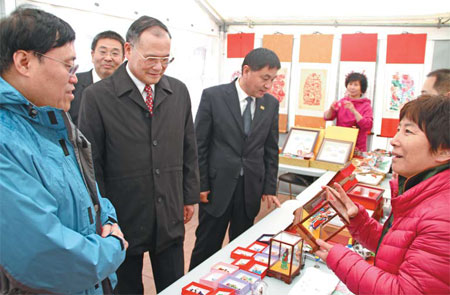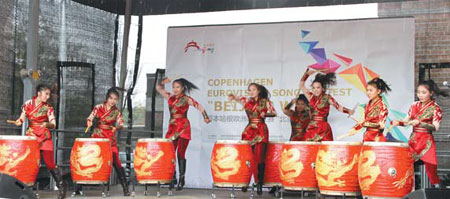Tourism slump signals room for improvement
Beijing has vowed to come up with more promotions to attract European tourists to the city.
Local authorities said they would increase tourism drives in targeted European countries after a less than satisfying performance of inbound travelers to Beijing.
"To further enhance the city's travel promotion to the rest of the world is like extending an invitation telling the world that we would love to have you in Beijing," said Zhang Jing, head of the image and marketing promotion department of the Beijing Tourism Development Commission.
According to the commission, the first quarter of this year saw 680,000 foreigners visit the capital, an 11.1 percent year-on-year decrease. The number of European visitors dropped to 201,000, a 13.3 percent reduction compared to the same period last year.
The commission said it believed enhanced global marketing could help revive inbound tourism.
The Chinese capital has ramped up its tourism marketing globally since 2013. It has advertised on CNN, the BBC, the National Geographic Channel and Fox and promoted its visa waiver policy at Chinese embassies and consulates.
The capital's 72-hour visa waiver policy, which started on Jan 1, 2013, applies to foreign tourists from 45 countries.
The commission said the city is considering a tax refund program, which would allow foreign visitors to claim tax refunds at shopping malls in the city, to attract more European tourists.
The government is also working to make the visa application process easier for foreigners and wants to come up with more customized tour packages to include airport and bus discounts that will help visitors get directly from the airport to hotels and attractions.
"An easier and more convenient journey for travelers will help attract more foreign visitors," said Zhang.
According to Beijing's Foreign Affairs Office, the capital has boosted its bilingual signage to help make travel easier for Western visitors.
However, experts said pollution is the major culprit in preventing many overseas visitors from coming to Beijing.
"Most of the tourists are here in Beijing for sightseeing tours, mainly at the Great Wall, Temple of Heaven and the Imperial Palace, for a few days," said Yang Jinsong, a professor at the China Tourism Academy who focuses on international tourism. "Very few of them would want to take a relaxing vacation here while choking in the smog."
The consistent and notorious smog is not an invitation but a warning against visiting, he said.
Yang said it is necessary for Beijing to tap the potential in MICE and business tourism, to make better use of the capital's resources. MICE refers to meetings, incentives, conferences and exhibitions. It is a type of tourism in which large groups are brought together for a particular purpose.
Yang also suggested the capital should try to understand what Europeans expect in Beijing and come up with more tailor-made tourism products to target the group of visitors, rather than just provide traditional tour packages.
Compared with other world-class tourist destination cities, Beijing has a lot of work to do to fully tap the potential of its tourism resources, he said.
|
Yan Zhongqiu (first from left), vice-chairman of Beijing's Political Consultative Committee, introduces the city's intangible heritage to Liu Biwei (center), Chinese ambassador to Denmark, at an exhibition in Copenhagen. Photos Provided to China Daily |
|
The Red Poppy Ladies' Percussion band performs at the opening ceremony of Beijing Week event in Copenhagen on Thursday. |
(China Daily 05/10/2014 page6)






















